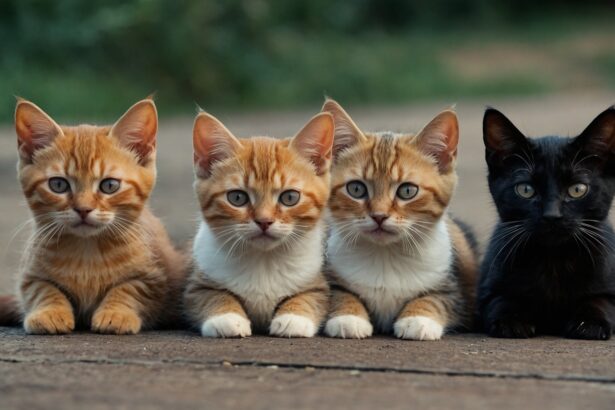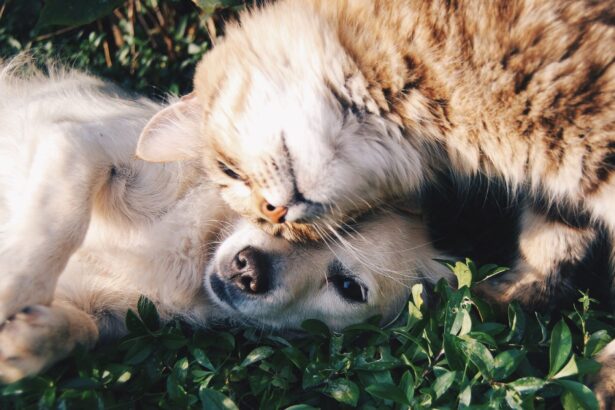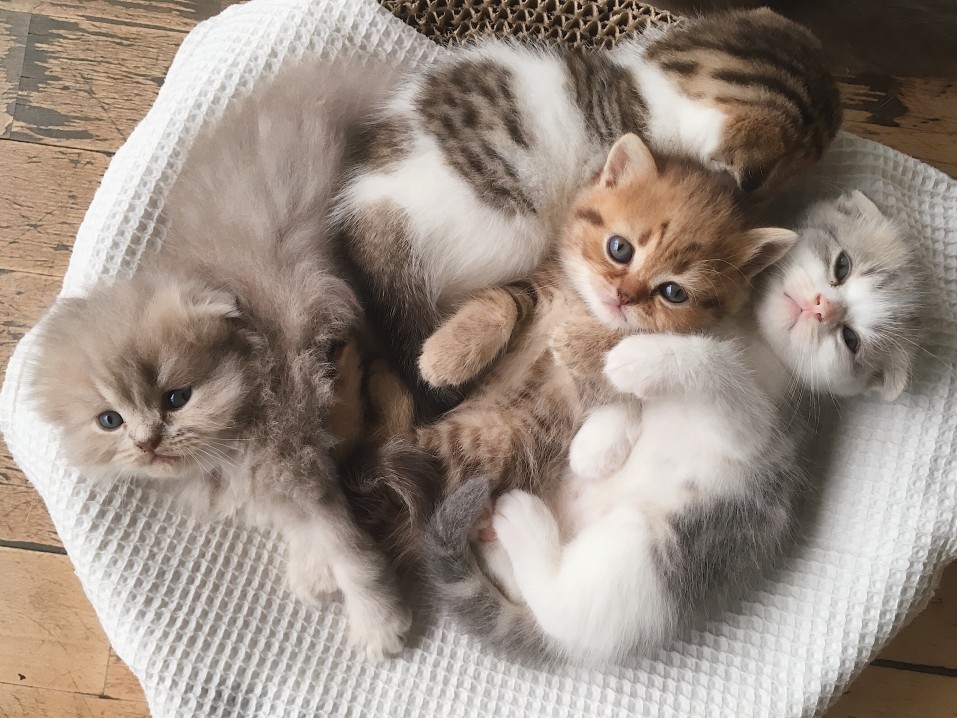Why does your cat meow at night? For all cat owners!
Every cat owner has experienced this moment: you’re in the middle of a good night’s sleep when you’re suddenly awakened by your cat’s persistent meowing. Although it’s an experience virtually every cat owner has had, it can be difficult to understand exactly why your cat has decided to play dawn in the middle of the night. In this article, we’ll explore the potential reasons why your cat may meow at night and suggest some strategies for dealing with this behavior.
The differences in nocturnal behavior between cats and humans
Are cats nocturnal animals?
The first thing to understand when it comes to cats’ sleeping habits is that they have different sleep cycles to us. Unlike humans, who tend to be active during the day and sleep at night, cats are naturally more active at night. This is due to their evolutionary history: cats’ ancestors were nocturnal animals. These nocturnal habits have been perpetuated down to our modern domestic cats, who although they have adapted their behavior to a certain extent, are still often more active during the dark hours.
It’s also important to note that cats are crepuscular predators, which means they prefer to hunt at dusk and dawn. This tendency may also contribute to their hyperactivity during these hours.
Why do cats behave differently at night?
Given their nocturnal nature and their status as crepuscular predators, it’s natural for cats to behave differently at night. They are often more energetic and alert, which may explain certain behaviors, such as nocturnal meowing. What’s more, domestic cats spend a large part of their day sleeping, so it’s normal for them to have a large reserve of energy to expend at night.
The main reasons why cats meow at night
Boredom and loneliness
One of the main reasons your cat may meow at night is because she’s bored or lonely. This is especially true if your cat spends a large part of the day alone at home. If your cat doesn’t have enough interesting things to do or interact with during the day, she may decide to do her own entertaining at night. This can manifest itself in noisy nocturnal games, mad runs around the house and, of course, meowing.
Hunger and thirst
Another factor that can lead your cat to meow at night is hunger or thirst. This is especially true if it’s been a long time since your cat last ate, or if its food or water bowl is empty. Some cats are impulsive eaters and can mismanage their food if given too much at once. If your cat has eaten all its food during the day, it may find itself with an empty stomach in the middle of the night. Make sure your cat has constant access to fresh water, and consider an automatic food dispenser to provide more regular meals throughout the day and night.
Medical disorders
It’s also important to note that excessive nocturnal meowing can be a sign of health problems in your cat. Conditions such asarthritis or kidney disease can make your cat uncomfortable and perhaps even painful, leading to excessive meowing. If you notice that your cat is meowing more than usual, and persistently so, it’s essential to consult a vet to rule out a possible medical cause.
How to respond to your cat’s nocturnal meows
Ignore unnecessary meowing
One of the hardest things to do when your cat meows at night is to ignore it. However, if you respond to every meow, you reinforce this behavior and your cat will learn that meowing is the way to get what he wants. It’s important to make sure that all your cat’s needs are met and that there are no health problems. Once you’ve eliminated these possible causes, it may be beneficial to simply ignore the meowing.
Creating an environment conducive to sleep
If you want to encourage your cat to sleep more at night, you can try creating an environment that encourages sleep. This could include a comfortable place to sleep, away from distractions and noise. You can also include quiet toys in the sleeping area so that your cat can play to his heart’s content without disturbing you. It can also be useful to have a small nightlight in the room if your cat is afraid of the dark.
Consult a veterinarian
As mentioned above, if the nocturnal meowing persists despite your best efforts, it’s advisable to consult a vet. An animal health professional can help you identify any underlying health problems and set up an appropriate treatment plan. It’s always best to be cautious when it comes to your furry friend’s well-being.
Understanding and responding to your cat’s nocturnal meows
Ultimately, understanding your cat’s nocturnal meows can help you greatly improve your relationship with him. Every cat is different, and what works for one cat may not work for another. So it’s vital to spend time observing your cat and understanding what might be causing its nocturnal meowing. By acquiring this knowledge, you’ll be better equipped to meet your cat’s needs and establish a relationship of love and mutual respect.






